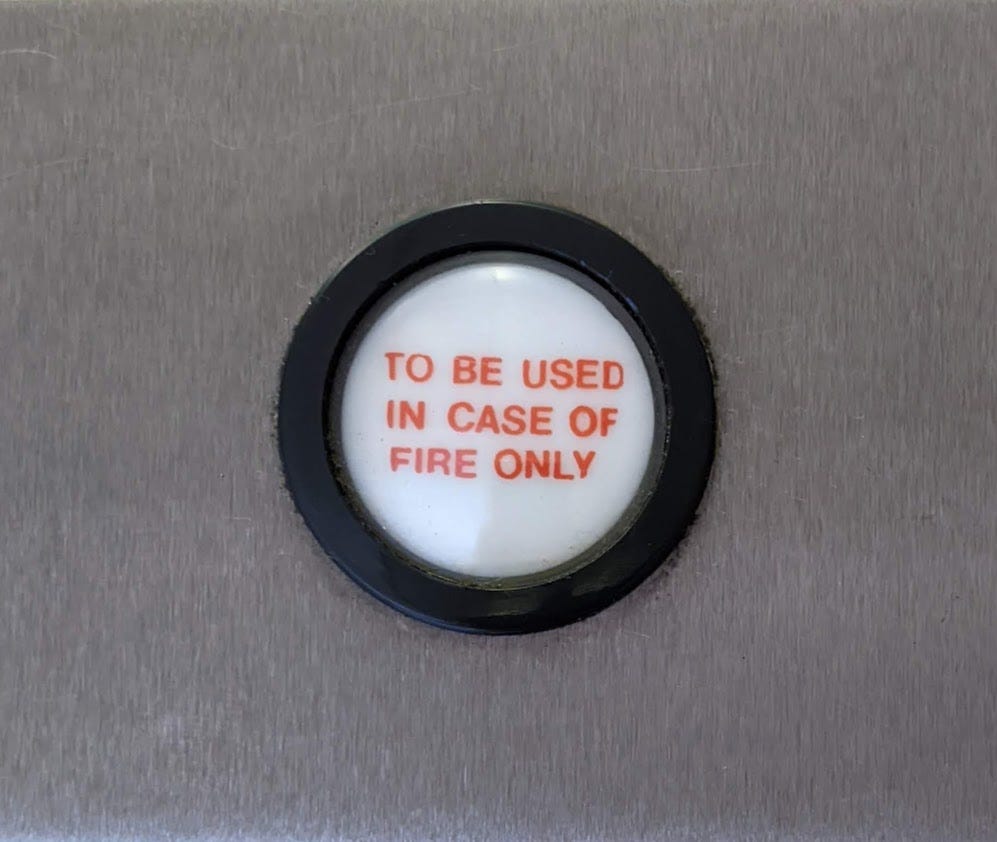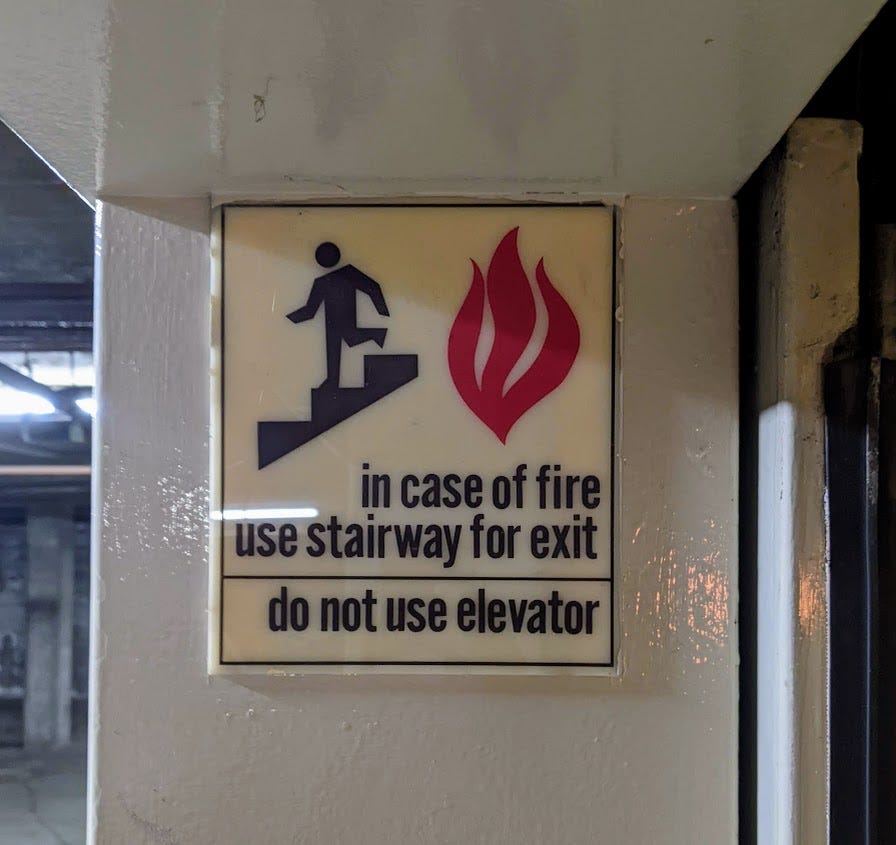Hello, my friends,
Earlier this week, Michael — who was (not) falling asleep — and I were chatting in the dark. Through the course of our conversation it became clear that Michael believed that people never stopped growing taller. Despite his contention, he accepted it when I exclaimed that if that were true, older folks would be a hundred feet tall. That established, we chewed over the design challenges of building a world where the range of human height was over a hundred feet. Truly! Imagine being a broom manufacturer whose customers were somewhere between five and ninety-nine feet tall. Quite a mind-bender!
Keep Looking
Nature cliches amuse me. I particularly like, “If there’s one thing that’s true about nature, it’s that it is all around us!” If Morgan Freeman narrated that line over a landscape of lush forest, we’d would all gently and pensively nod. Undoubtedly, it is true that nature, or living things, are nearly everywhere if you look long enough. Observing a patch of grass can be a dull pastime, but if you stick with it long enough, various bugs will appear and you’ll wonder how you’d missed them all before — ladybugs, ants, spiders may not be worth staring at your lawn, but that’s just a pedestrian example. Bodies of water are a better one, especially small ponds. These landmarks masterfully maintain a stoic exterior until you sit beside one for twenty minutes and witness what teems inside (and sometimes just above — I’m looking at you, dragonflies).
In The Forest Unseen: A Year’s Watch in Nature, biologist David George Haskell spent a year making routine visits to a one square meter of Tennessee forest. There’s a bookful of activity in just that small forest block, and a fascinating book it is — especially the section about the live hoarding habits of shrews. Not the type of nightmare I was expecting from a peaceable volume on forest life. On the other hand, the point remains that the longer you look at a parcel of nature, the more life you’ll notice.

Fire Signs
It’s common knowledge in customer service circles that people don’t read signs. People are so oblivious, right? Sometimes, though, the problem is the signs. To wit, we have this button in our elevator:
I’m guessing that if pressed it summons the Fire Department directly. That’s fine at face value. But it’s located inside the elevator, so does the fire need to be inside the elevator? Are the chances of that happening high enough that we need a special button? Just for reference, we also have your standard emergency button, one of those car cigarette lighters doodads that you pull to stop the elevator, and a phone in there. There’s also this standard sign near the door:
So if there was a fire in the building, we wouldn’t be running into the elevator and pressing the “IN CASE OF FIRE ONLY” button. Really, why would we? There are smoke detectors (per building codes) and a sprinkler system inside every unit, and everyone has a cell phone or landline. Common sense says that we’d run to safety and then call emergency services. The kicker is that even if there was a fire in the elevator, at least a quarter of the folks who live here wouldn’t be able to use the special button for a most obvious reason…
…They wouldn’t be able to reach it since it’s six feet up the wall. At least there will never be a false alarm. Well, unless three sneaky toddlers in a trenchcoat saunter into the elevator, that is. I know exactly where those grubby fingers would go.
What Idle Scientists
You know how in movies and comic books, mutant superheros, aliens, and whatnot are always afraid of getting caught because someone — the government or some evil corporation — is going to run experiments on them? Here’s what I’m wondering: Who’s going to run the experiments? Is it plausible that these entities have an endless supply of scientists and highly specialized lab equipment on-hand for the exact moment that the alien happens to come into their possession? I’ll suspend my disbelief when it comes to a guy shooting webs from his hands, but this is where I draw the line. Think about it, these researchers would have to specialize in a rare niche of a highly unusual field such as the physiology of beings with random mutations, the neuroscience behind telekinesis, or, I don’t know, the physics of eye lasers. Who are these people and where do they congregate?
Furthermore, if their research is government funded, does it get published in an open-access scientific journal? Who could realistically conduct peer review on articles about the powers of Gambit, who throws playing cards charged with kinetic energy, or his wife Rogue, who according to Wikipedia, “…is capable of absorbing the life force, attributes, memories, and superpowers of anyone through physical touch.” And if they do happen to get caught, is there a pot of government money just hanging out ready to fund research on odd-ball superpowers like those of Jumbo Carnation (teflon skin, 4 arms, super-strength, fashion design)?
And if we’re talking about the private sector, sure, maybe it’s a bit more flexible with money and resources, but even then, would they hire and retain scientists with esoteric interests and then just have them sit around until an unwilling research subject with deadly powers is brought in? Seems like a whole career that’s a life-limiting move.
But let’s pretend that you didn’t have to worry about ending up in a lab, what superpower would you have? (hypothetically, I mean…Let’s not get HMF put on one of those special lists)

p.s. - My friend Faith just started a personal Substack and apparently it’s my fault so I’m obligated to share (and do so willingly):









Jumbo Carnation is new to me! 💐💐💐
Definitely your fault, but also definitely not obligated to share. It's just me being a FB refugee's all. (and thank you, though if anyone takes you up on it, they might not thank you)
Wait till Michael finds out that people get shorter as they age.